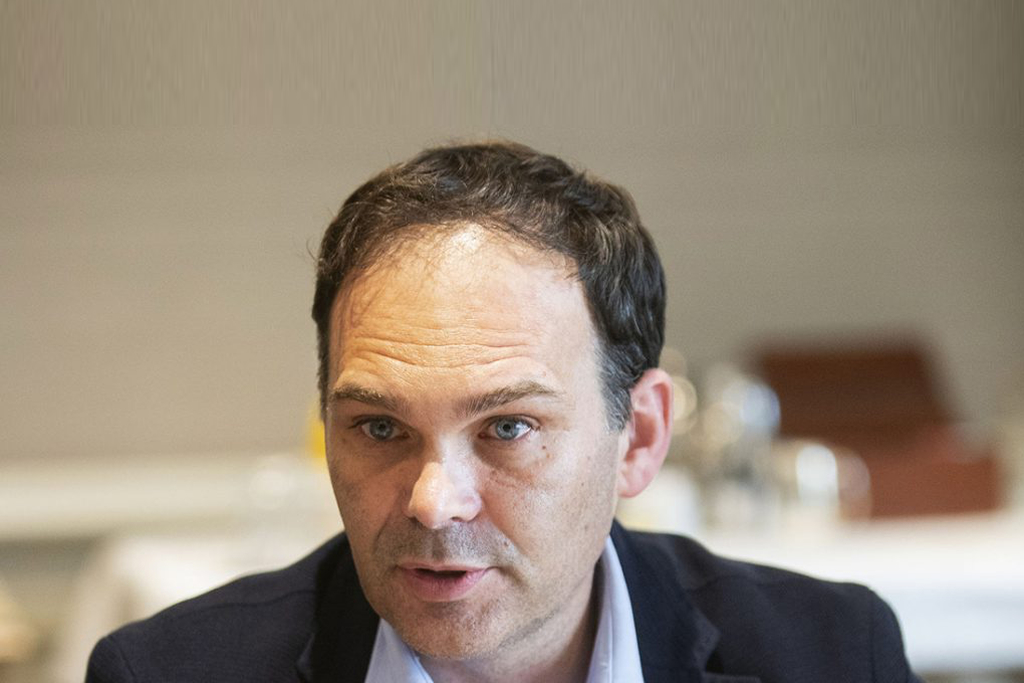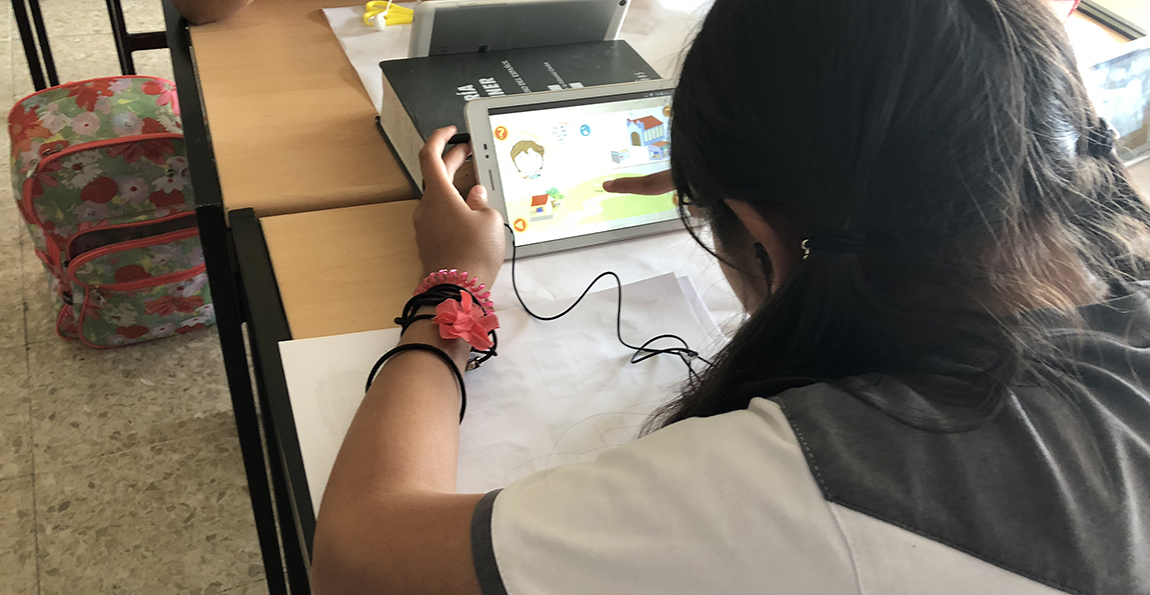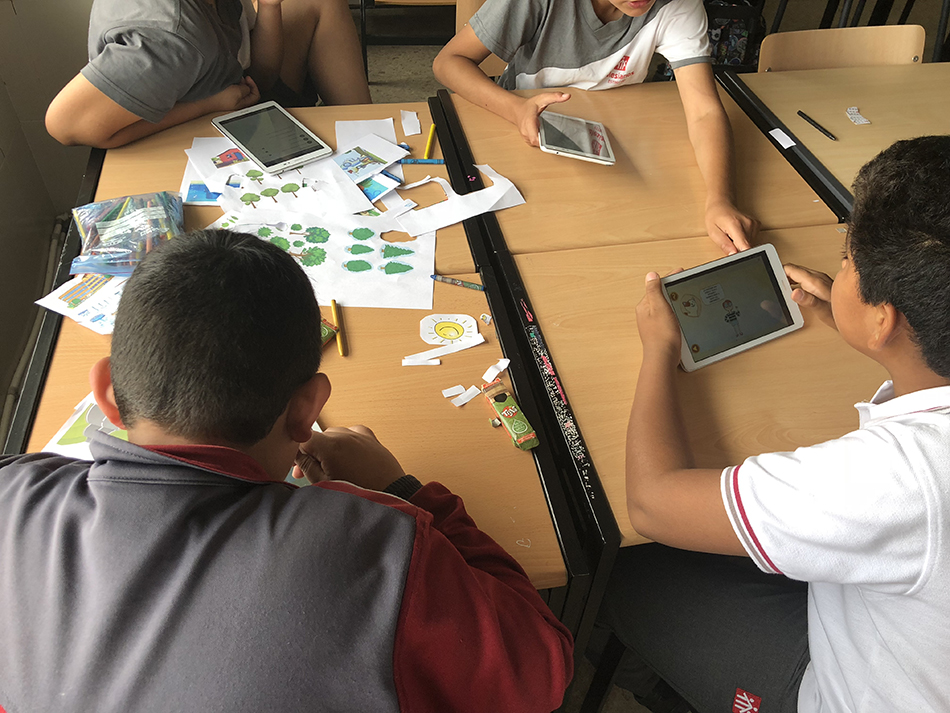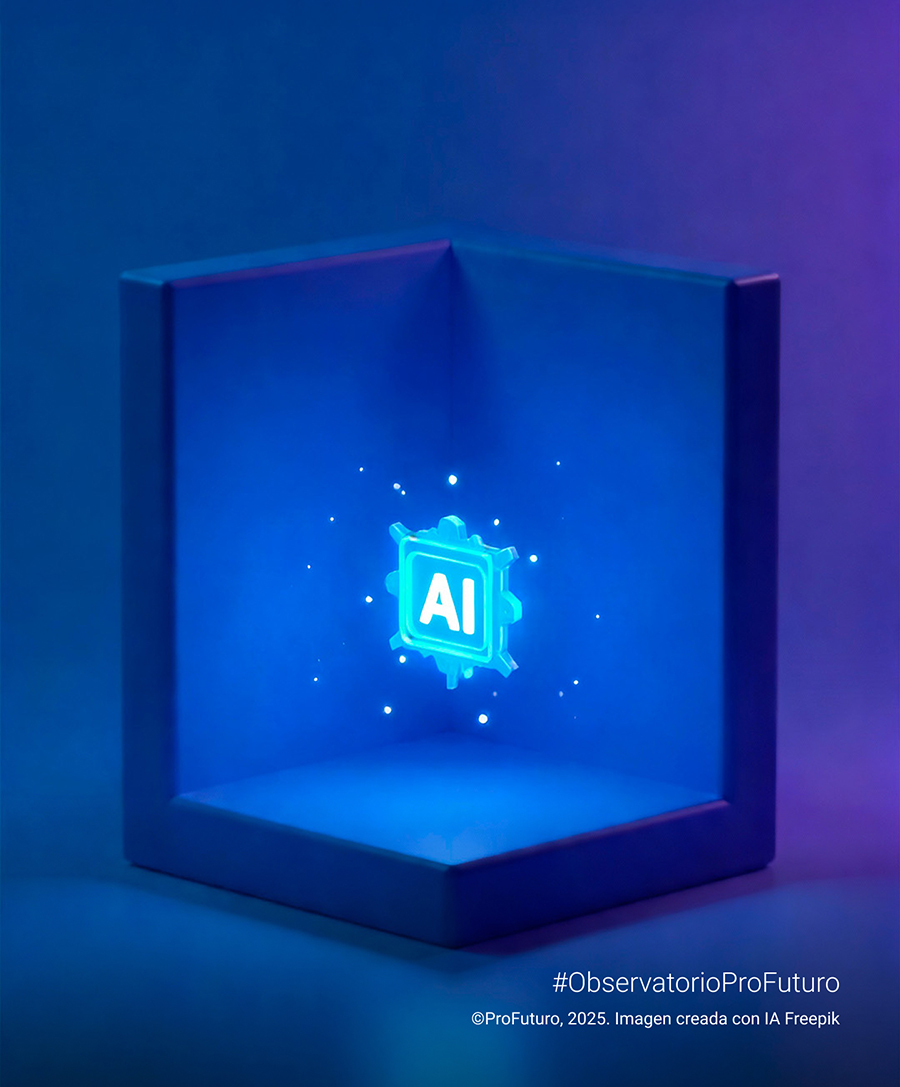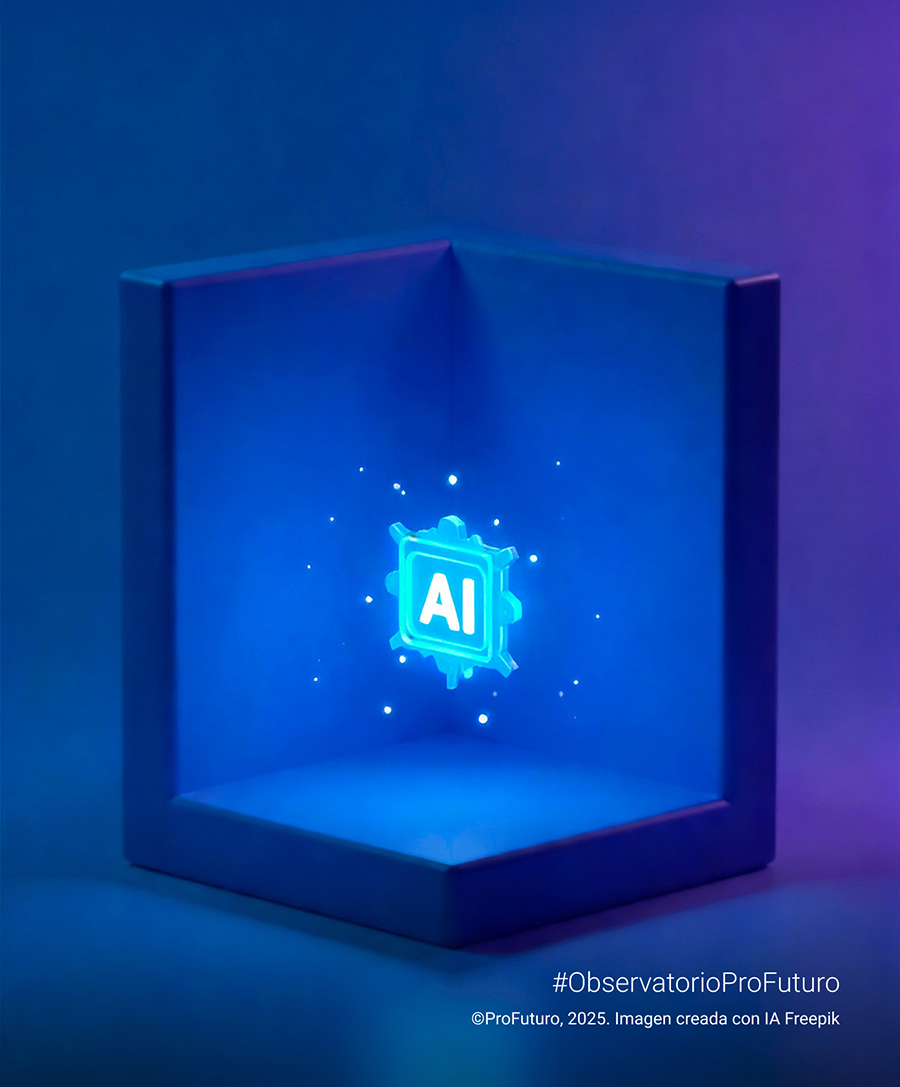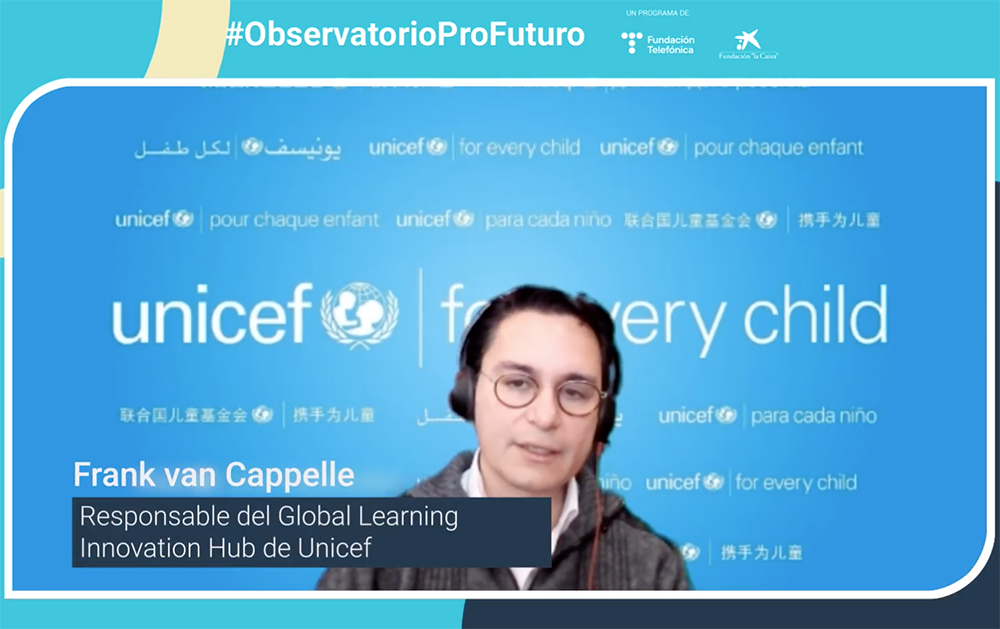Javier Doval, General Coordinator of the Pinardi Foundation, a social entity that works with children, adolescents and young people in social difficulty through socio-educational care programs, addresses some issues that revolve around the educational challenges linked to the development of digital competence.
What challenge does an organization like the Pinardi Foundation face in its work aimed at improving the educational quality of children at possible risk of exclusion?
At Pinardi, we believe that educational work is the basis for achieving equal opportunities in an educational system and a social reality that has to face the new changes that society imposes on it: the diversity of the student body, migratory movements, new forms of family structure, early school leaving, the incorporation of new technologies…
Therefore, we face a challenge focused on breaking the inequalities of all minors, through a pedagogical and socio-educational intervention that offers a path of comprehensive educational development.
All of this means providing the boys and girls with the necessary skills and resources so that they can develop their individualized educational project with guarantees of success.
What sense can the digital component have in the work of an organization that serves young people at possible risk of exclusion?
The digital component allows us to bring boys and girls closer to today’s reality. Nowadays, the digital world is everywhere, and many of them don’t have the option to keep this daily routine in mind. In addition, it facilitates the intervention, as it is another support resource, and provides an answer to a new reality that is increasingly being presented to them from the formal school.
But it also challenges us to make it an educational challenge, where digital competence is another part of the personal and social development of children. Training related to this digital competence will be fundamental in their development and autonomy, both in the medium and long term, as it is part of the world we live in today. Without it, we would not be able to ensure the equality of opportunity that we have set as our fundamental mission.
In addition, it is a point of extrinsic motivation towards discovery and learning based on their preferences. Any content that has an associated digital component (through an animation, video or interactive game) will have a greater impact on boys and girls, thus helping their learning and normalization.
How is Pinardi currently incorporating the digital component into its daily work?
Over the last few months, with the support of the Profuturo Foundation, we have started a path of training for the professionals of the entity, of knowledge of the different resources, of innovation and of networking. It is also a path of knowledge of experiences in which the digital component is a key element and that allows us to offer a better response to the people who are the target of our projects, in our goal of breaking the barriers that prevent integration and cause early school leaving.
On this last aspect, at Pinardi we affirm that it is necessary to work intensively so that the digital component is not another element of social exclusion (for example, in the access to hardware). Based on this principle, all our actions aimed at the incorporation of the digital component are accompanied by complementary elements that minimize this exclusion factor.
Is it essential to incorporate digital work in order to attend to Pinardi’s socio-educational mission with greater guarantees?
The use of the digital as a support for the professional who intervenes in the classroom is key, as it facilitates the individualized attention that is required in these socio-educational programs, where this type of intervention is fundamental. In order to serve and reach more children, the digital component plays an important role, as it allows the child to work autonomously, but without substituting the professional, as well as facilitating the task of the professional by simplifying processes.
Also, taking into account that many of the people we serve have a history of school absenteeism, the digital material allows children to put into action different skills than those usually developed in the context of formal education and, at the same time, generate a special interest that has a positive impact on their motivation.
It is also relevant for the children we work with, especially from a critical and educational point of view, where the digital world should be one more means in their psychosocial and educational development. This must be done by putting our trust in a pedagogical model that avoids “digital consumption” without reflection and the search for information with criteria.
From a strategic point of view, how does Pinardi work to ensure continuity in learning for young people who may be at risk of dropping out of school? How could a digital learning proposal help you?
Pinardi’s work begins in the first year of primary education (also, in some cases, in the infant stages) and has its first stop when students finish their compulsory secondary education. Nearly 650 children and adolescents are attended weekly in our seven centres in the Community of Madrid.
By means of a pedagogical proposal based on a personalized accompaniment, a comprehensive attention and a close and familiar environment, our objective is that the children have the necessary support and resources so that they can finish their studies and continue to develop on a personal level. This is done through educational, cultural and leisure activities.
We also have complementary resources and projects for those who, for different reasons, leave their studies early, through programmes aimed at improving employability (for example, First Professional Experience) or the return to education.
In these educational or employability improvement itineraries, digital competence appears as a fundamental resource that complements and reinforces them.
Let’s move on to more concrete situations… Covering such basic needs as having a space to do homework at home can be a factor that slows down a child’s educational development. Do you think that a digital learning proposal could help in the resolution of this cases?
Of course. It is a tool which, by means of games and the use of digital material, makes it possible to work on the contents indistinctly in one place or another, have continuity from the classroom to each home, find support resources that favour the resolution of some obstacles autonomously, giving continuity to a learning process based on experience and motivation.
What has an experience like the Living Lab, developed within the framework of your socio-educational work in the Pinardi-Estrecho centre, meant for Pinardi?
A learning experience, sharing and the opportunity to incorporate a technological component to the daily intervention with children, which has increased motivation and the desire to do, to discover. We must not forget, from the point of view of the educator, the possibility of covering and responding to the needs that each person has, using digital tools as a great educational support. It has also meant a change of perspective, of added value, of opportunity for the children.
What improvement proposal would you make for the development of a second edition, for a digital education project in a vulnerable environment such as the Living Lab?
The challenge for Pinardi and Profuturo is to make even more intensive efforts for the development and continuity of the work with this highly vulnerable group, supporting their learning, their personal and social development, creating material that manages to go a step further, combining content, digital competence, with keys such as gamification in the workspace, generating critical awareness, innovating and experimenting with new methodologies among other proposals.
All of this must be done with a shared objective: that the children of Pinardi are able to enjoy this wonderful stage of their lives, to break the circle of poverty and exclusion in which most of them live and have the personal, educational, social and emotional development that they deserve.
Biography
He has a degree in Chemistry from the Complutense University of Madrid, and is qualified in Leadership and Innovation from ESADE Business School. He has coordinated the Federation of Youth Centres Valdoco, an association dedicated to promoting a comprehensive education in leisure time for children, adolescents and young people in social difficulties.
Currently
Currently, he is the General Coordinator of the Pinardi Foundation, a social entity that works with children, adolescents and young people in social difficulty through socio-educational care programs, social and labour insertion, awareness and studies, reception and volunteering.



